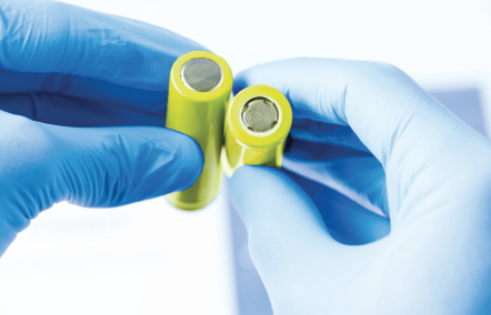Lithium batteries are primary batteries that have lithium metal or lithium compounds as an anode. Depending on the design and chemical compounds used, these batteries can produce voltages from 1.5 V to about 3 V, twice the voltage of an ordinary zinc-carbon or alkaline cell.
These are used in many portable consumer electronic devices and are widely used in the industry. The term "lithium batteries" refers to a family of different chemistries, comprising many types of cathodes and electrolytes. You can also buy cylindrical battery packs via NuEnergy Storage Solutions.

The most common type of these used in consumer applications uses metallic lithium as anode and manganese dioxide as cathode, with a salt of lithium dissolved in an organic solvent.
These offer high energy density, high capacity, and long cycle life in the most common, lightweight sizes – with no memory effect. These cells, which operate over a wide temperature range, are ideal for many portable electronic devices – including rugged military equipment. This chemistry is superior to nickel and lead-based chemistries and the applications are growing as a result.
Unlike the other technologies, you can keep your Li-Ions fully charged: go ahead and top off a 90% chargeback up to 100%. Otherwise, care and handling are the same as you are accustomed to. Keep them cool, dry, and safe from shock. Be sure to recycle them when they're ready to be discarded.
Advantages:
- High energy density – the potential for yet higher capacities.
- Does not need prolonged priming when new. One regular charge is all that's needed.
- Relatively low self-discharge – self-discharge is less than half that of nickel-based batteries.
- Low Maintenance – no periodic discharge is needed; there is no memory.
- Specialty cells can provide very high current to applications such as power tools.